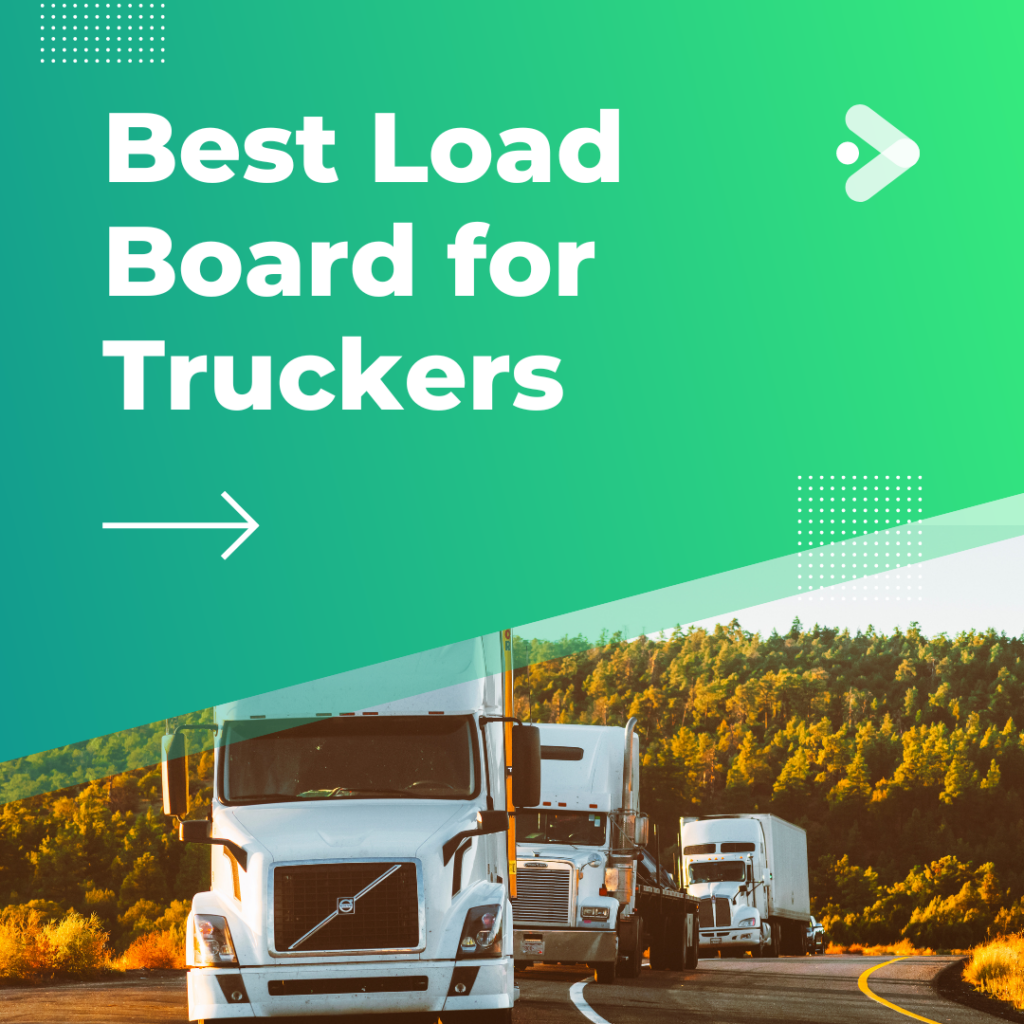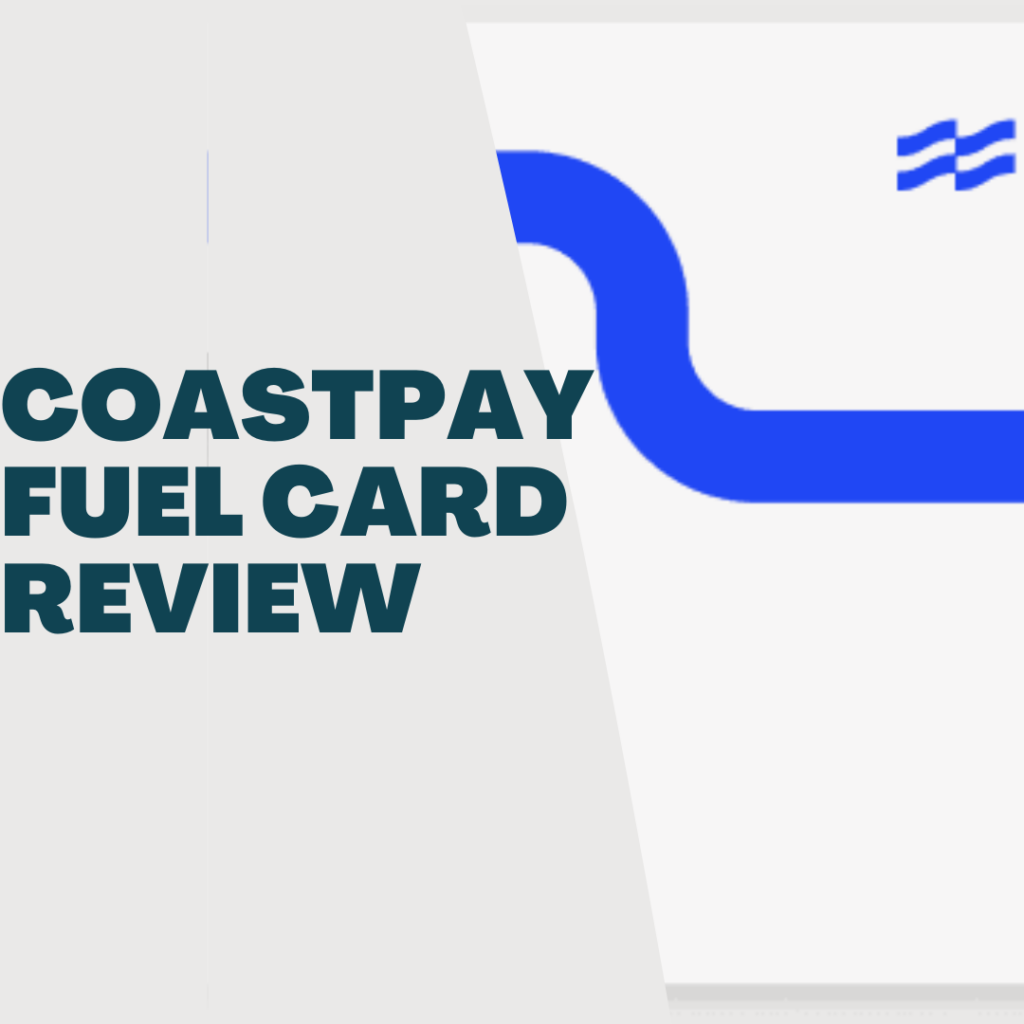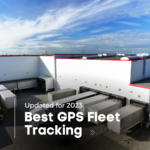Staying safe on the road is top of mind for most drivers, fleet managers, and freight operators. Driver skill and experience is the most important factor that contributes to safe driving — but technology can also help.
If you’re in the trucking industry or involved in any sort of commercial driving, you’ve likely heard of electronic logging devices (ELDs). In fact, your rig likely already has one.
But there’s a lot to learn about these little devices. This comprehensive guide will show you everything you need to know about ELDs — including how to find the best electronic logging device for your needs.
What Is an Electronic Logging Device (ELD)?
ELDs are devices that are required to be used in most commercial vehicles. They track all sorts of data, including speed, location via GPS, driving behavior, engine hours, vehicle miles, and more.
ELDs are designed to ensure that the driver (and others on the road) are kept as safe as possible. They help enforce rules like hours of service to ensure drivers get enough breaks and rest to continue driving safely.
Most ELDs are installed via the vehicle’s diagnostic port, which may be in the engine compartment, under the dash or steering column, in the fuse box, or in another accessible location. The device then transmits data, via Bluetooth or mobile networks, to compatible devices for viewing data (like a smartphone).
Once installed, drivers typically don’t need to interact with the ELD itself. Instead, the device transmits data to their smartphones, and then to a central data management system run by the ELD provider. Fleet managers and business owners can then typically access this data remotely, without needing to access the physical ELD.
Are ELDs Required?
Electronic logging devices are required for most commercial vehicles. Most vehicles and drivers who are required to maintain Records of Duty Status (RODS) are also required to use an ELD.
There are a few exceptions, however. The following groups are excluded from the ELD mandate:
- Drivers who qualify for short-haul exceptions (this is typically drivers who cover distances of less than 150 air-miles). These drivers are allowed to continue using time cards in place of RODS, and are not required to use ELDs.
- Drivers who use paper RODS for no more than 8 days out of every 30-day period.
- Drivers who conduct drive-away-tow-away operations, in which the driven vehicle is the commodity being delivered.
- Drivers of commercial vehicles manufactured before 2000 (these vehicles may not be compatible with ELDs).
Any driver/vehicle not meeting these exceptions is generally required to use an ELD.
ELD compliance is mandated, and drivers and companies who do not comply can face penalties and fees. Be sure to double check that you’re in compliance.
How to Choose the Best ELD for Your Truck or Fleet
There are many companies offering electronic logging devices. Price points, features, reliability, and government compliance all vary. How can you choose the best ELDs for trucking?
Here are some key considerations to keep in mind.
Government Compliance
First and foremost, make sure any device you’re considering is fully compliant with government rules. Manufacturers are supposed to meet certain compatibility and functionality standards with their devices — but some fail to do so, or fail to update devices to keep in line with current regulations.
The Federal Motor Carrier Safety Administration (FMCSA) maintains a list of compliant ELD manufacturers and specific devices. You can search this database by name or manufacturer. There’s also a list of devices that have had their compliance standards revoked, meaning that they are no longer compliant with current regulations and should not be used.
Pricing and Monthly Fees
Electronic logging devices have two potential costs: The upfront price for the device itself (typically free to $300+), and monthly fees per device or per driver (typically free to $50+ per month).
Some devices are more costly upfront, but have no ongoing monthly fees. Others are free upfront, but have significant monthly costs for the life of the device. You’ll want to run the numbers to see which makes most sense for you. In many cases, paying more upfront for a device with no fees will save you money in the long run.
Features
Every electronic logging device will share a similar basic feature set, as these features are required to be compliant with government regulations. For instance, all ELDs will track engine time, location, time/date, driver ID, etc.
But some devices go further, providing additional features and tracking metrics that can be helpful. For instance, some might have fuel-optimization features to help you cut costs, or features for preventative maintenance planning.
Garmin eLog: Best Electronic Logging Device Overall
Upfront cost: $249.99
Monthly cost: None
The Garmin eLog is an advanced ELD from Garmin, a well known manufacturer of automotive tech, wearable tech and more. It snags our top spot as the best ELD overall for a number of reasons, but chiefly because it’s a great value. While the $250 price tag is higher than average, the eLog has no ongoing fees, which can save you money in the long run.
Some key features of the Garmin eLog ELD include:
- Simple installation – Garmin’s device can typically be self-installed in just a few minutes. It’s compatible with most semi-trucks, fitting easily with 9-pin J1939 and 6-pin J1708 diagnostic ports. Volvo trucks may require an adapter.
- No monthly fees – Monthly costs for competing devices can often run $15-$30 or more. Garmin’s ELD has zero ongoing costs, though the initial device cost is higher than average.
- Functional app – The Garmin eLog app, for Android and iOS, allows drivers and managers to view data and track performance. It’s a functional, well-rated app that’s easy to use.
- Compatible with Garmin dēzl GPS – Garmin’s eLog plays nicely with other Garmin devices, including the popular Garmin dēzl GPS truck navigator line.
Overall, this is a simple, cost-effective, and easy to use electronic logging device. There aren’t too many bells-and-whistles here past the basic functionality — but this device simply works well, is reliable, and is cost-effective in the long run.
Motive: Best for Comprehensive Fleet Management
Upfront cost: Custom
Monthly cost: Custom
Motive, formerly known as KeepTruckin, is a full-fledged fleet management, compliance, and driver safety system. They have a variety of products and services available, but the Motive Fleet Compliance Management solution is most relevant for folks looking for a good ELD.
Some key features of the Motive Fleet Compliance Management include:
- All-in-one compliance – Motive’s devices and software solutions offer ELD compliance, IFTA reporting, and CSA insights/scoring, all in one platform.
- Pre-trip inspections – The Motive app makes pre-trip inspections easy for drivers, and they can sign off on reports right in the app.
- Automated alerts – Motive will automatically notify drivers when a violation is approaching — for instance, drivers may receive a notification when a break is required, or when they’re approaching a HOS violation.
- Inspection Mode – The Motive app is customized for drivers, but there’s a simplified Inspection Mode that can be turned on during roadside inspections. This mode shows only the key info that inspectors need to know.
- Team driving support – Motive supports team driving by using AI-powered tools to match drivers to the relevant driver profile. Drivers can trade off, ensuring compliance and avoiding violations while driving as a team.
- Full Motive product line – Motive is an ecosystem for fleets and drivers, covering everything from compliance to driver safety, telematics, dispatch, and more. Each component can be used separately, but each connects to the central ecosystem seamlessly.
Motive uses a custom pricing model that varies by fleet size and features required. It’s a lot more than just an electronic tracking device; but you could theoretically just subscribe to Motive Fleet Compliance (which combines ELD compliance, IFTA reporting, and CSA scoring into one).
Bottom Line
Motive is an excellent all-in-one solution for fleets. Its build-your-own feature set is great for customization, though higher-end packages can definitely get pricey. Keep in mind there is a minimum 1-year contract for most Motive plans.
Matrack: Best Budget ELD
Upfront cost: Free ($10 shipping for 1-4 devices)
Monthly cost: From $19.95/mo per vehicle
Matrack is a budget-friendly electronic logging device provider. They offer free hardware, and subscriptions from just $19.95/month — with no contract or commitment.
Some key features of the Matrack ELD include:
- Free device – There’s no charge for the physical ELD that Matrack offers, though you will have to pay for shipping. It’s $10 to ship 1-4 devices, and an additional $10 for each 4 additional. For instance, 20 devices would cost $50 to ship.
- Easy installation – Matrack’s devices are plug-and-play into most commercial vehicles, so installation is quite simple.
- DOT inspection mode – On the Matrack app is a simple mode that allows DOT inspectors to view logs directly from a driver’s mobile device. The platform can also transmit ELD records directly to FMCSA servers for routine safety audits.
- Easier tax and compliance filings – In the Premium plan ($24.95/month), Matrack’s Fleet Manager software dashboard can help with data collection and filing of IFTA reports and other required filings, including HOS compliance logs, DVIRS and accident reports.
- State and local level reporting – The Fleet Manager dashboard also has tools to prepare state mileage reports and ensure compliance with other local regulations.
Matrack has other fleet management functionality, as well, included in the Premium plan. At $24.95 per month, the premium plan is likely worth the $5 upgrade for most situations — and the hardware is free with either plan.
Bottom Line
If you’re looking for a cheap ELD with solid functionality and a user-friendly app, Matrack is a compelling option. It’s also a bonus that there are no contracts required (some competitors with free hardware require a longer-term contract).
Samsara Vehicle IoT Gateway: Best ELD with GPS and Diagnostics
Upfront cost: $1,584 for 3 years (equivalent to $44/month) per device
Monthly cost: None
Samsara is an advanced monitoring technology company that offers ELDs, dash cams, vehicle telematics and more. The Samsara Vehicle IoT Gateway is a very advanced electronic tracking device that goes beyond the basics to deliver an integrated, intelligent tracking and analytics experience.
Some key features of the Samsara ELD include:
- Built-in 4g LTE and WiFi – Samsara’s devices have built-in 4g LTE compatibility, as well as WiFi hotspots to connect devices, even in areas with limited signal.
- Advanced vehicle diagnostics – Beyond basic ELD functionality, Samsara’s devices also offer rich fuel usage and vehicle diagnostics data in real time, to help optimize operations and save fuel.
- Plug-and-play with other Samsara devices – Samsara is a high-end, all-in-one telemetrics, tracking and diagnostics provider. Once you have an IoT gateway installed, you can easily plug and play dash cams, routing and dispatch tools, panic buttons, and much more — all of which syncs with the Samsara platform.
- Real-time GPS and telematics – Samsara devices offer real-time GPS tracking that transmits automatically to fleet managers and command centers. Tools update with a real-time ETA estimate, accounting for traffic and other hazards.
- Centralized fleet management – Samsara’s software is top-notch if you’re looking for a complete fleet management solution. It’s highly customizable, so you can add the exact devices and services that are most relevant to your fleet.
Samsara’s pricing isn’t the cheapest, and they do typically require a hefty upfront investment. The IoT vehicle gateway alone is over $1,500, but this covers the device and licensing fees for 3 years. Discounts are available for larger fleets; and you can see custom pricing by starting the checkout process.
Bottom Line
Ultimately, Samsara is best for fleet managers who want an all-in-one telemetrics, ELD, GPS and diagnostics provider. If you’re only looking for basic ELD functionality, there are certainly cheaper options.
Verizon Connect ELD: Best for Network Reliability
Upfront cost: Custom pricing
Monthly cost: Custom pricing
Verizon Connect ELD is an integrated electronic logging device from a household name in the telecommunications industry. And that’s one of the main reasons why this ELD makes the list: It runs on the Verizon network, which offers some of the best network reliability out there.
Some key features of the Verizon Connect ELD include:
- Verizon LTE network – Verizon promises 99.9% system uptime with high data integrity and global data access.
- 24/7 support – Drivers and managers can contact support 24/7, directly from the Verizon Connect app.
- Intuitive UI – Verizon’s apps and dashboards are very user-friendly. In fact, they were ranked #1 for features and ease of use in 2019 by ABI Research Competitive Assessment.
- Easy DVIR reports – Verizon’s tools make it simpler to prepare DVIR reports, both to meet regulatory requirements and to more accurately forecast routine maintenance tasks.
- Pairs with Verizon Fleet Tracking Software – Verizon has a full-fledged fleet tracking software that greatly expands on the functionality of the basic ELDs to cover GPS tracking, analytics, vehicle maintenance reports, and more. This is optional (and costs extra), but it’s a solid solution for fleet management.
If network uptime and data reliability are important for your fleet, Verizon’s ELD is top-notch. Pricing is unfortunately not made public, so you’ll have to contact Verizon for a custom quote.
Bottom Line
Verizon’s network is tough to beat. Plus, the company has poured ample resources into making a very user-friendly app and desktop dashboard, whether you’re self-managing your own truck or coordinating a sizable fleet.
Stoneridge EZ-ELD: Best ELD with No Contract
Upfront cost: $169 per device
Monthly cost: $15 per month
EZ-ELD is a simple electronic logging device offered by Stoneridge. It’s easy to install and use, has reasonable monthly costs, and doesn’t require a long-term contract.
Some key features of the EZ-ELD include:
- Free interchangeable connectors – Each EZ-ELD device comes with interchangeable connectors (6pin, 9pin, OBDII) for widespread vehicle compatibility. There’s no additional cost for these converters.
- Pay as you go – No long-term contracts are required. The monthly cost is $15/month, or you can prepay for a year for $150.
- Ample local storage – The EZ-ELD device has enough onboard storage to hold around 6 months’ worth of data, without connecting to a network. Keep in mind that only around 8 days of data will be immediately viewable via the app, however.
- Third-party validated – These devices are of course FMCSA approved, but they’re also verified and tested by a qualified third party.
- IFTA and DVIR reports for North America – The EZ-ELD device and paired software can automate the creation of IFTA and DVIR reports, and even supports Canadian IFTA requirements.
Pricing-wise, the EZ-ELD is somewhere in the middle: It’s not the best value overall, but the lack of a contract makes it attractive to some firms. Each device costs $169 upfront, plus $15 per month (or $150 per year).
Bottom Line
If you’re looking for a no-contract option to try out, this is a good service to consider. It might be a particularly good fit for seasonal fleets and drivers, as it’s easy to pause service and restart it later.
EROAD: Best ELD for Reefer Trucking
Upfront cost: Custom
Monthly cost: Custom (from $25/month per device)
The EROAD electronic logging device is a powerful ELD system that simplifies compliance reporting. It’s part of the EROAD Fleet Management solution, which offers GPS tracking, route optimization, and unique features for moving temperature-sensitive loads.
Some key features of the EROAD ELD include:
- Automated reporting and data transmission – EROAD ELDs are set up to automatically collect data, prepare reports, and transmit data to a secure digital cloud storage solution.
- Configurable rules and geofencing – When combined with EROAD’s full service fleet management solution, the tech also supports custom, geofence-enabled rulesets to enforce company policy and analyze driver behavior.
- Custom alerts – Create custom alerts and notifications via app notification, text, or email.
- In-cab display – The EROAD ELD comes with the Ehubo in-cab display device, which looks like a small GPS unit. This displays key data right in the cab, so that drivers don’t need to use their own devices (though there’s also a smartphone app).
- Temperature tracking and verification – For reefer fleets, EROAD has an extensive featureset to ensure compliance with food safety regulations and shipper requests. CoreTemp tracks core internal load temperatures to configure early warning temperature alerts per compartment. Advanced door alerts can even warn of cracks or air leaks early on (though this requires door sensors, sold separately).
EROAD uses a custom pricing setup. Because this is a comprehensive fleet management system, it can be costly depending on the setup — but the benefit is that it’s fully customizable. You could opt for just the ELDs, or build your own custom solution to suit your fleet’s needs.
Bottom Line
EROAD is a great fleet management solution, and their ELDs are top notch. This is a particularly good choice for reefer fleets who can utilize EROAD’s FSMA compliance and advanced temperature control features.
GPSTrackIt: Best ELD with Maintenance Monitoring
Upfront cost: Custom
Monthly cost: Custom
GPSTrackIt offers a simple, no-frills electronic logging device that’s simple to install, use, and even to stop using given its rolling monthly contracts. It has some standout features to help fleet managers monitor vehicle health and plan for maintenance.
Some key features of the GPS TrackIt ELD include:
- Maintenance checklists – In addition to standard ELD features, GPSTrackIt has simple vehicle maintenance checklists and reports that drivers can prepare. These checklists can guide drivers through basic inspections of drive lines, compressors, tires and any other component needing regular checkups — and helps give fleet managers valuable insight into vehicle health.
- Lifetime hardware warranty – GPSTrackIt ELDs come with a limited lifetime warranty, which is rare for electronic logging devices.
- Bring your own device option – GPSTrackIt sells physical hardware, but they also support other compatible devices that can be used with GPSTrackIt software.
- Simple interface – The user interface of the app and desktop dashboard are very simple and no-frills, making them easy to navigate on any device — and with any level of technical expertise.
- Customizable driver alerts – Choose from a library of commonly used driver alerts (i.e. HOS violation approaching), or create your own based on company policy.
GPSTrackIt isn’t the fanciest solution out there, but it gets the job done. The maintenance checklists are a nice touch, as they are more detailed than your typical pre-trip maintenance check.
Bottom Line
Standout features here are the maintenance checklists, the lifetime warranty on GPSTrackIt devices, and the compatibility with select third-party devices.
GPSInsight: Best Electronic Logging Device with In-Cab Display
Upfront cost: Custom
Monthly cost: Custom
GPSInsight offers a combined ELD and DVIR solution for drivers and fleet managers. Its packages include options for rugged dash-mounted display tablets (or you can use your own tablet/smartphone).
Some key features of the GPSInsight ELD include:
- Dedicated display – The optional in-cab display tablet is a nice touch, as it powers on automatically when the vehicle turns on, increasing compliance and driver visibility. It also has a nice large display, and a streamlined UI to avoid unnecessary distractions.
- Streamlined DVIR reporting – GPSInsight combines ELD compliance with DVIR reporting, all in the same app.
- Basic fleet tracking – There are also some basic fleet tracking and management features to track performance, driver behavior, etc. While they’re not as robust as a dedicated fleet management platform, some of these features are included for free.
- Image upload – Drivers can take pictures and upload them to the GPSInsight platform. This is useful for capturing vehicle defects and maintenance issues.
- Good customer support – GPSInsight is notable for having better than average customer support. There’s 24/7 phone and email support, and the company even has multilingual support agents.
Like many of these ELD providers, pricing with GPSInsight is custom and requires contacting sales for a quote. It’s therefore difficult to gauge the value of this provider, as prices vary significantly depending on each fleet’s needs.
Bottom Line
Many ELDs simply utilize a driver’s smartphone as the primary data display. While that works, it does present some issues — it’s easier to get distracted, and if notifications are silenced, it’s easier to miss a driver alert. This product is a good choice for fleets looking for dedicated physical in-cab displays.
BigRoad DashLink: Simplest ELD to Use
Upfront cost: None
Monthly cost: Custom
BigRoad DashLink is a very simple electronic logging device and paired software. It’s dead simple to install, setup, and use, even for drivers with limited technological expertise.
Some key features of the BigRoad DashLink ELD include:
- Interchangeable functionality – A single BigRoad DashLink unit can be configured to be used interchangeably between drivers and users.
- User-friendly UI – BigRoad’s native smartphone apps are simple to use and easy to navigate. The apps include quick links to other useful apps, like Google Maps, which can be run simultaneously.
- Canadian ELD compliant – BigRoad’s devices are fully compliant in all of North America, covering both US FMCSA requirements as well as Transport Canada requirements.
- Fuel tracking – DashLink also has basic fuel tracking functionality to reduce costs.
- In-app DVIR – Handle pre-trip inspections right in the app with DVIR support at no additional cost.
BigRoad is a popular provider for good reason: Their tools are easy to use, come with 24/7 support, and are available without upfront hardware costs. Monthly pricing is custom.
Bottom Line
BigRoads DashLink has perhaps the simplest to use driver experience of any ELD on the market. Despite that, it’s feature-rich and useful for fleets of any size.
Frequently Asked Questions
Here are answers to some of the most commonly asked questions about electronic logging devices.
What Does an Electronic Logging Device Do?
Electronic logging devices (ELDs) automatically record drive time, miles driven, break time, etc. to ensure compliance with Drivers Record of Duty Status (RODS) and Hours of Service (HOS) reporting. ELDs are mandated for most commercial vehicles.
Do Owner-Operators Need ELDs?
In most cases, yes. All owner-operators who must maintain RODs and HOS reports must generally use an ELD. There are a few exceptions, for instance for certain short-haul drivers and drivers of vehicles manufactured prior to 2000.
How Much Does an Electronic Logging Device Cost Per Month?
ELDs typically cost between $15 and $40+ per month, per device. However, some companies sell devices with a higher upfront cost, along with very low (or even no) monthly costs.
Can Truck Drivers Still Use Paper Logs?
In most cases, no. The ELD mandate requires that most commercial vehicle drivers maintain digital logs in a compliant fashion.
Can a Smartphone Be Used as An ELD?
Yes, if it meets all the ELD requirements, and if it’s displayed in a fixed position in the cab that’s visible to the driver. If you go this route, you’ll need to use a compatible ELD app that meets the requirements.
Can You Install an ELD in Older Trucks?
Most ELDs plug into a vehicle’s diagnostic port. In general, all newer vehicles manufactured in the last ~20+ years will be easy to use with ELDs. For vehicles manufactured prior to 2000, there’s actually an exemption. So, drivers of much older vehicles may not be required to use an ELD. However, older trucks with newer, ELD-compatible engines will still likely need to be used with an electronic logging device.
Bottom Line
The best electronic logging devices can help fleets and individual drivers improve safety, ensure compliance, and even potentially reduce costs via lower insurance rates and fewer incidents on the road. Any of the ELDs on this list would be a great choice; it’s just about picking the best ELD for your specific needs.
Want more ways to optimize your transport business? Check out AllTruckers for insights that can improve your business’ efficiency and profitability — starting today.














